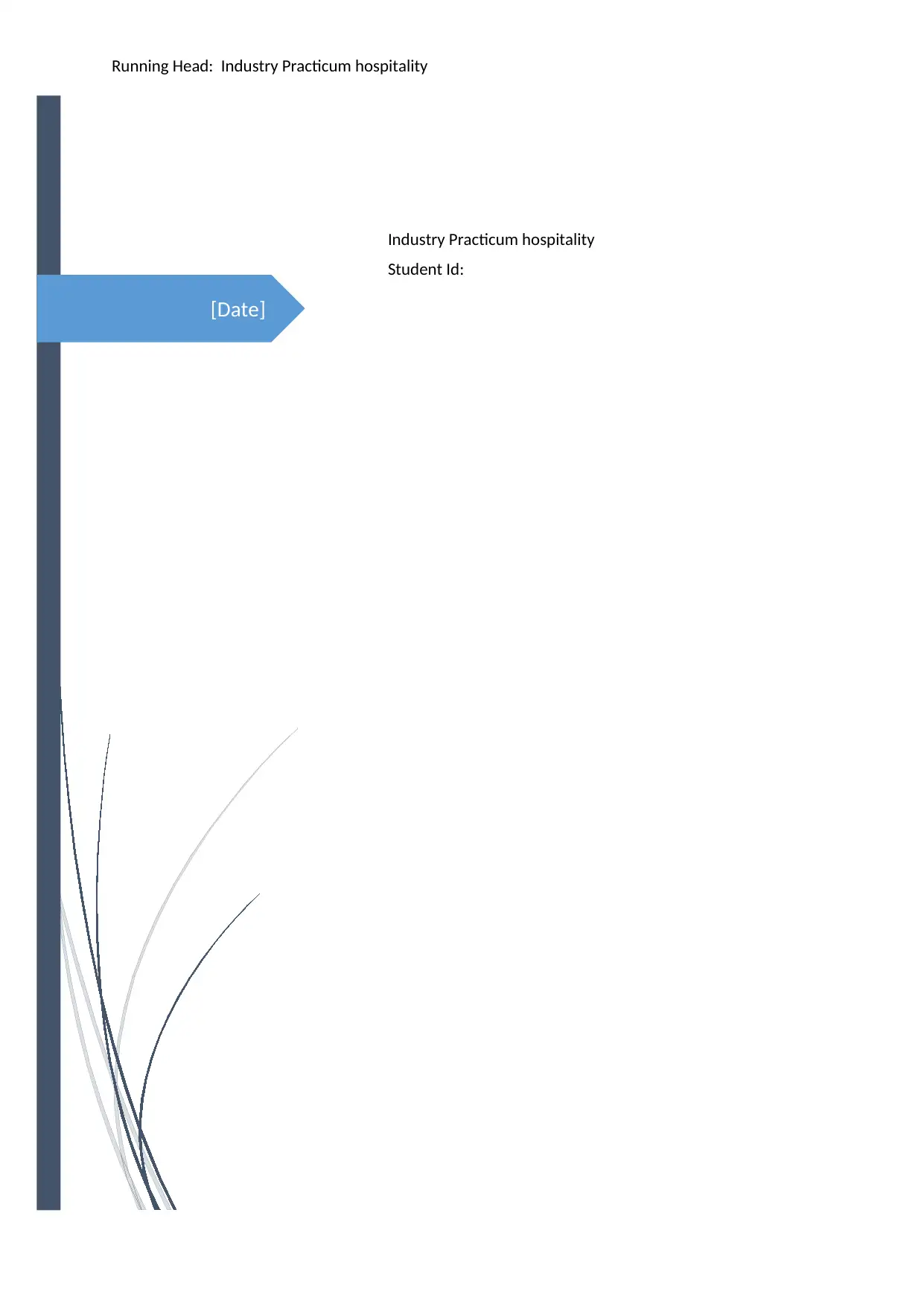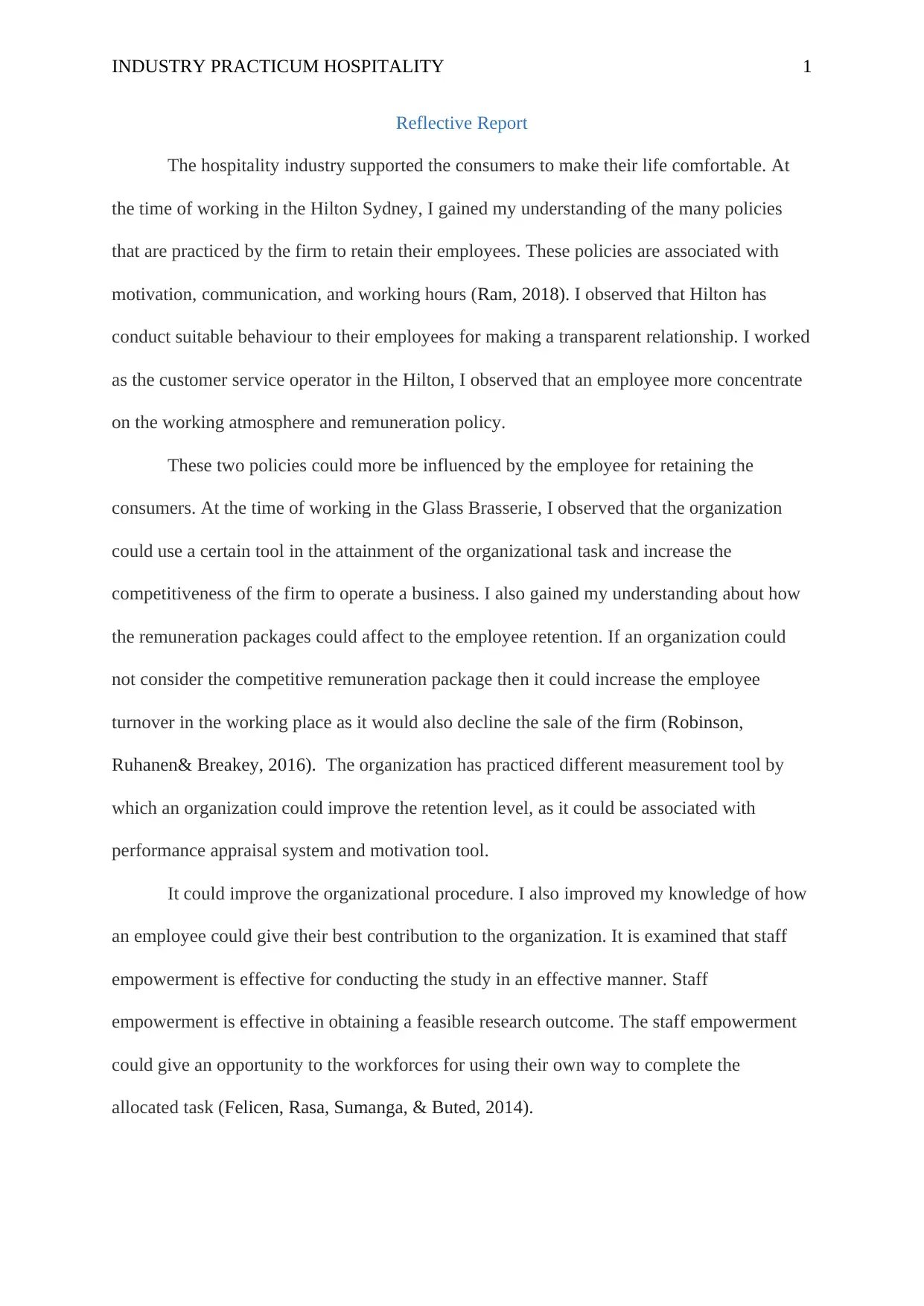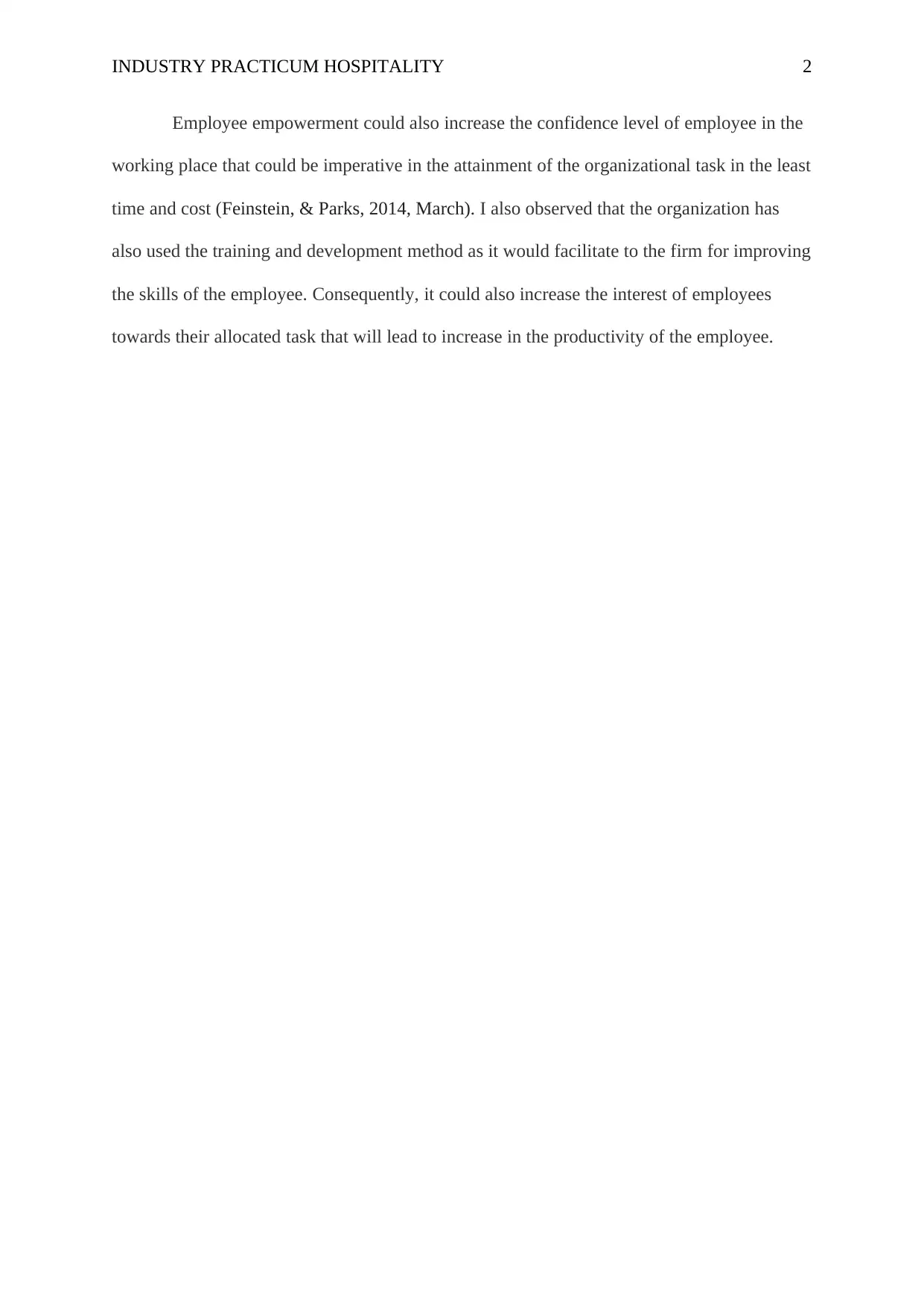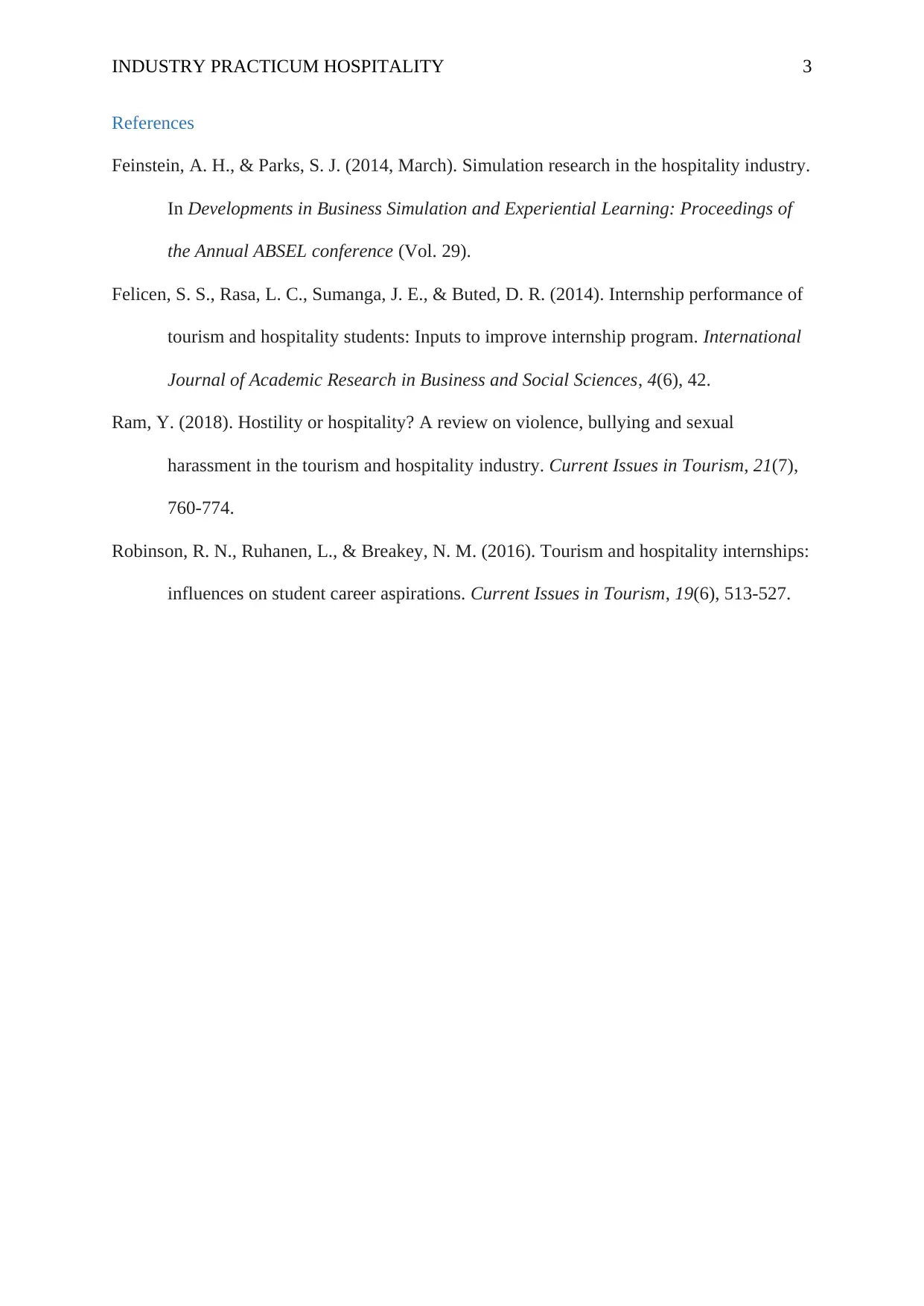Reflective Report on Hospitality Industry: Hilton and Practices
VerifiedAdded on 2023/01/05
|4
|639
|72
Report
AI Summary
This report is a reflective analysis of the hospitality industry, focusing on the experiences and observations made during an internship at the Hilton. The report discusses the importance of employee management, including motivation, communication, and remuneration policies. It highlights the impact of these policies on employee retention and customer service. The report also examines the significance of training and development, staff empowerment, and the overall organizational culture in enhancing employee performance and achieving business goals. The author references the importance of remuneration, and the implementation of these policies to maintain a competitive advantage in the hospitality industry. Furthermore, the report explores how these practices can be enhanced to improve the overall performance of the organization.
1 out of 4






![[object Object]](/_next/static/media/star-bottom.7253800d.svg)